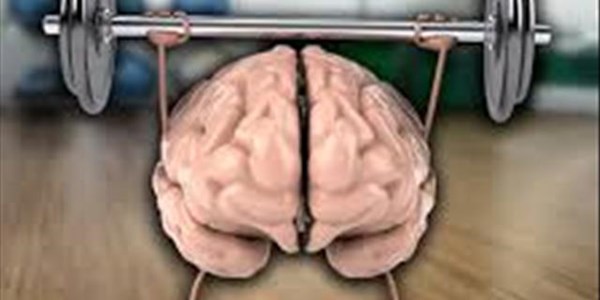The Good Blog
The Good Blog - Help Your Health─── 20:00 Sun, 23 Apr 2017

Regular exercise changes the brain to improve memory, thinking skills!
https://www.youtube.com/watch?v=yyOg_KipUAo
There are plenty of good reasons to be physically active. Big ones include reducing the odds of developing heart disease, stroke, and diabetes. Maybe you want to lose weight, lower your blood pressure, prevent depression, or just look better. Here’s another one, which especially applies to those of us (including me) experiencing the brain fog that comes with age: exercise changes the brain in ways that protect memory and thinking skills.
In a study done at the University of British Columbia, researchers found that regular aerobic exercise, the kind that gets your heart and your sweat glands pumping, appears to boost the size of the hippocampus, the brain area involved in verbal memory and learning. Resistance training, balance and muscle toning exercises did not have the same results.
The finding comes at a critical time. Researchers say one new case of dementia is detected every four seconds globally. They estimate that by the year 2050, more than 115 million people will have dementia worldwide.
Exercise and the brain
Exercise helps memory and thinking through both direct and indirect means. The benefits of exercise come directly from its ability to reduce insulin resistance, reduce inflammation, and stimulate the release of growth factors—chemicals in the brain that affect the health of brain cells, the growth of new blood vessels in the brain, and even the abundance and survival of new brain cells.
Indirectly, exercise improves mood and sleep, and reduces stress and anxiety. Problems in these areas frequently cause or contribute to cognitive impairment.
Many studies have suggested that the parts of the brain that control thinking and memory (the prefrontal cortex and medial temporal cortex) have greater volume in people who exercise versus people who don’t. “Even more exciting is the finding that engaging in a program of regular exercise of moderate intensity over six months or a year is associated with an increase in the volume of selected brain regions,” says Dr. Scott McGinnis, a neurologist at Brigham and Women’s Hospital and an instructor in neurology at Harvard Medical School.
Put it to the test
So what should you do? Start exercising! We don’t know exactly which exercise is best. Almost all of the research has looked at walking, including the latest study. “It’s likely that other forms of aerobic exercise that get your heart pumping might yield similar benefits,” says Dr. McGinnis.
How much exercise is required to improve memory? These study participants walked briskly for one hour, twice a week. That’s 120 minutes of moderate intensity exercise a week. Standard recommendations advise half an hour of moderate physical activity most days of the week, or 150 minutes a week. If that seems daunting, start with a few minutes a day, and increase the amount you exercise by five or 10 minutes every week until you reach your goal.
If you don’t want to walk, consider other moderate-intensity exercises, such as swimming, stair climbing, tennis, squash, or dancing. Don’t forget that household activities can count as well, such as intense floor mopping, raking leaves, or anything that gets your heart pumping so much that you break out in a light sweat.
Don’t have the discipline to do it on your own? Try any or all of these ideas:
- Join a class or work out with a friend who’ll hold you accountable.
- Track your progress, which encourages you to reach a goal.
- If you’re able, hire a personal trainer. (Paying an expert is good motivation.)
Whatever exercise and motivators you choose, commit to establishing exercise as a habit, almost like taking a prescription medication. After all, they say that exercise is medicine, and that can go on the top of anyone’s list of reasons to work out.













